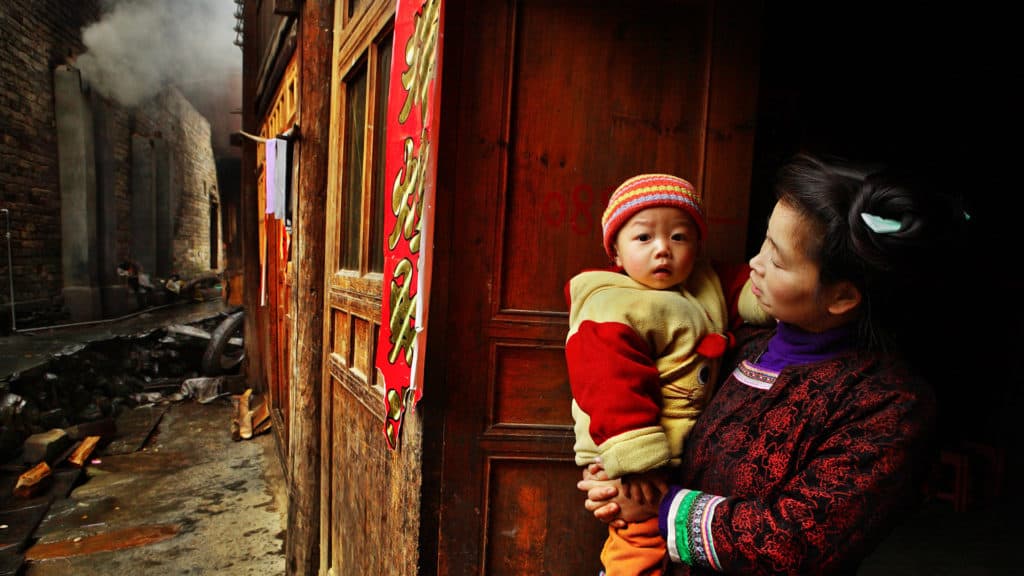Ying Yang Bao feeding supplement reaches 1.4 million children in rural china.
Worldwide, undernutrition causes 45% of all deaths in children under five years of age. Undernutrition increases the frequency and severity of common infections and makes recovery more difficult, and, in the first 1,000 days of a child’s life, it can lead to stunting, which in turn, is associated with impaired cognitive development. Undernutrition especially plagues the least developed and developing countries. Children in sub-Saharan Africa suffer the highest rates of undernutrition while Asia has the greatest number of undernourished children.
Since 1990, China has seen significant improvements in child health as measured by large decreases in mortality rates for infants and children under five respectively, child underweight, and stunting. Still, as of 2010, 28% of Chinese children 6 – 12 months old suffered from anemia. Importantly, there are significant differences between urban and rural environments with children in rural areas of the country much more likely to suffer undernutrition, anemia and other symptoms of micronutrient deficiencies, and stunting.
It was the disparities between urban and rural populations that spurred researchers into action.
Led by Professor Chen Chunming, founding president of the China Center for Disease Control and Prevention (China CDC) and founding executive director of ILSI Focal Point in China, these researchers developed and tested Ying Yang Bao – a soy-based, supplemental feeding powder (to be mixed with water or added to porridge) fortified with iron; zinc; calcium; vitamin B2; vitamin D; and protein.
Feeding trails were first conducted in 2001, and after 7 years of additional studies and follow-up, results showed Ying Yang Bao to effectively reduce micronutrient deficiencies and stunting, which led to improved cognitive development in the test populations. Professor Chen and her teams at China CDC and ILSI Focal Point in China then developed standards for production criteria; safety; packaging; labeling; and storage and transport requirements – in short, everything needed to scale-up the Ying Yang Bao interventions.
In 2010 and with support from UNICEF, an 18-month intervention reaching 30,000 children was implemented. In 2011, 2012, and 2013, additional campaigns relying on funds from private donors and the Chinese government, reached an additional 730,000 children. In 2014, the Chinese government committed 500 million yuan (approximately USD 73 million) so Ying Yang Bao could be distributed to nearly 1.4 million infants in 341 of China’s poorest counties.
Ying Yang Bao’s success has been due to hard work and effective collaboration among government agencies in China, research teams, and grassroots health organizations.
Ying Yang Bao and the lessons it teaches about nutrition, food science, and health; program coordination; community engagement; and parental involvement can serve as a potential model for similar programs to reduce undernutrition in other parts of the world.
ILSI News | February 2017
Back to Newsletter
